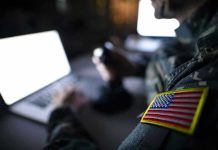
Venezuela’s military just announced a massive mobilization of nearly 200,000 troops in direct response to American naval movements near Latin America, signaling the most serious escalation between the two nations in years.
Story Snapshot
- Venezuela deploys 200,000 soldiers in response to U.S. aircraft carrier presence
- Largest military mobilization represents direct challenge to American influence in region
- Escalation occurs amid broader tensions between Washington and Caracas
- Move signals Venezuela’s willingness to confront U.S. military presence near its borders
Venezuela Responds to American Naval Power
The Venezuelan government announced Tuesday evening its decision to mobilize nearly 200,000 military personnel in what officials describe as a “massive deployment.” This dramatic escalation comes as the United States positioned its largest aircraft carrier in waters near Latin America, creating a tense standoff between the two nations that hasn’t been seen in recent years.
The timing of Venezuela’s military response appears calculated to send a clear message to Washington. President Nicolás Maduro’s regime views the American naval presence as a direct threat to Venezuelan sovereignty and regional stability. The deployment represents one of the largest military mobilizations in Venezuela’s recent history, demonstrating the seriousness with which Caracas views the current situation.
Strategic Implications of Military Escalation
Venezuela’s decision to mobilize such a substantial force reveals the depth of concern within the Maduro administration about American intentions in the region. The deployment of 200,000 troops represents a significant portion of Venezuela’s total military capacity and indicates the government’s willingness to commit substantial resources to counter perceived American aggression.
This military posturing serves multiple purposes for the Venezuelan leadership. Domestically, it rallies nationalist sentiment and portrays Maduro as a strong defender against foreign intervention. Internationally, it signals to other regional powers that Venezuela remains willing to resist American influence through military means if necessary. The mobilization also demonstrates Venezuela’s continued military capabilities despite years of economic sanctions and international isolation.
Broader Context of US-Venezuela Relations
The current escalation represents the latest chapter in a deteriorating relationship between Washington and Caracas that has spanned multiple American administrations. Venezuela’s authoritarian drift under Maduro has prompted increasingly harsh sanctions from the United States, while Venezuela has consistently portrayed itself as a victim of American imperialism seeking to control Latin American resources and politics.
The presence of America’s largest aircraft carrier near Venezuelan waters carries significant symbolic weight beyond its immediate military implications. For Venezuela’s leadership, such displays of naval power evoke historical patterns of American intervention in Latin America that have long been sources of regional resentment. The carrier’s deployment likely reinforces Venezuelan narratives about American aggression while providing justification for the massive troop mobilization.
Regional Security Concerns Mount
This military standoff creates broader implications for regional stability and American strategic interests in Latin America. Venezuela’s large-scale troop deployment could prompt responses from neighboring countries concerned about border security and regional balance of power. The escalation also tests American resolve and strategic planning in a region where China and Russia have increasingly challenged traditional American influence.
The mobilization of 200,000 Venezuelan troops represents more than mere saber-rattling. It demonstrates Maduro’s calculation that confronting American power directly serves his regime’s survival interests better than diplomatic accommodation. This approach reflects Venezuela’s assessment that backing down would signal weakness to both domestic opponents and international adversaries, potentially encouraging further American pressure or internal challenges to his rule.
Sources:
Pentagon’s largest warship enters Latin American waters as US tensions with Venezuela rise


















